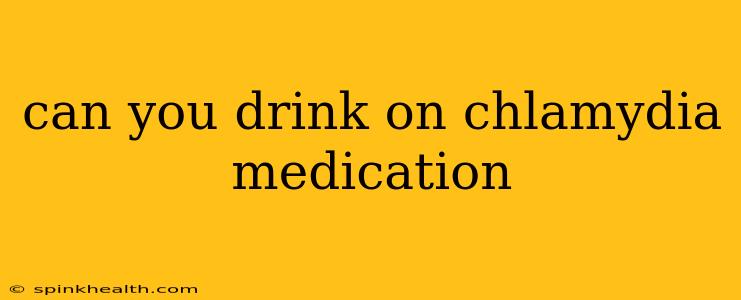Can You Drink Alcohol While on Chlamydia Medication? A Story of Responsible Treatment
Let's be honest, nobody wants to deal with a chlamydia infection. It's uncomfortable, potentially serious, and the last thing you want is to make things worse. So, the question many people ask when facing a chlamydia diagnosis and prescription is: can I drink alcohol while taking my medication? The short answer is…it's complicated, and it depends.
My journey with understanding this started years ago when a friend confided in me about her diagnosis. She was stressed, worried, and on top of everything, she had a big work party coming up. Her main concern, aside from the infection itself, was whether she could enjoy a drink or two. This sparked my interest in digging deeper into the interaction between chlamydia medication and alcohol.
What is Chlamydia Medication?
Chlamydia is a sexually transmitted infection (STI) often treated with antibiotics like azithromycin or doxycycline. These powerful medications target the bacteria causing the infection, eradicating it from your system. However, these medications can have side effects, and alcohol can interact with them in unpredictable ways.
Can Alcohol Interfere with Chlamydia Treatment?
This is the core of the matter. While there isn't a direct, dramatic interaction like some medication-alcohol combinations, there are potential problems.
-
Increased Risk of Side Effects: Both azithromycin and doxycycline can cause nausea, vomiting, diarrhea, and dizziness. Alcohol can exacerbate these symptoms, making you feel significantly worse. Imagine feeling queasy from the medication and then adding the effects of alcohol – not a pleasant experience.
-
Liver Stress: Your liver is responsible for processing both medication and alcohol. Consuming alcohol while taking antibiotics puts extra strain on your liver, potentially slowing down the medication's effectiveness or increasing the chance of liver damage, especially with prolonged or excessive alcohol consumption.
-
Reduced Medication Effectiveness: While not definitively proven for all antibiotics used to treat chlamydia, some studies suggest that alcohol can interfere with the absorption and effectiveness of certain medications. This means your treatment might not be as successful, potentially leading to a prolonged infection or recurrence.
What about a Single Drink?
Many people wonder if a single glass of wine or a beer would pose a problem. While the risk might be lower with a single drink, it's still generally recommended to abstain from alcohol completely during treatment. The reason? It's better to be safe than sorry. The potential side effects, even with a small amount of alcohol, are not worth the risk. Remember, you're fighting an infection, and your body needs to focus its energy on recovery.
What if I'm already experiencing side effects?
If you’re already battling nausea, dizziness, or other side effects from the medication, alcohol will almost certainly worsen them. Avoid alcohol entirely if this is the case.
How Long Should I Avoid Alcohol?
It's best to avoid alcohol for the entire duration of your chlamydia treatment and for a few days afterwards. Your doctor can give you specific recommendations.
Is it safe to drink after I've finished treatment?
Once your treatment is complete and you're feeling better, it's perfectly fine to resume drinking alcohol in moderation, following safe drinking guidelines.
The Bottom Line: While there isn't a definitive "don't drink at all" rule printed on the prescription label, responsible choices are crucial when treating chlamydia. The potential for increased side effects, liver stress, and reduced medication effectiveness far outweighs the benefits of alcohol consumption during treatment. Prioritizing your health and ensuring successful treatment should be your primary concern.
Remember to always consult your doctor or pharmacist for specific advice tailored to your situation and medication. They can provide the most accurate and up-to-date information. Your health is paramount.

